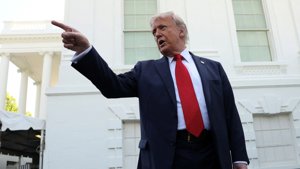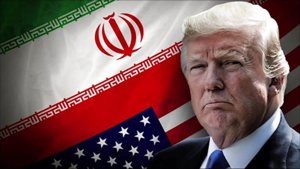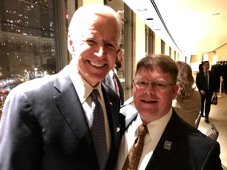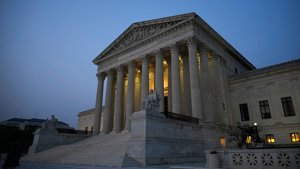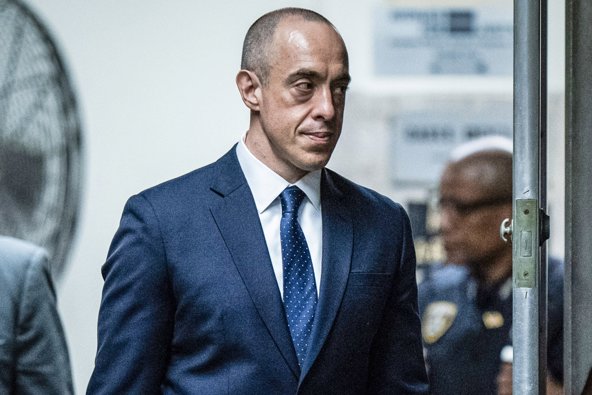
Senate Questions Trump’s Nominee Emil Bove Over DOJ Record
Emil Bove faces tough Senate scrutiny over DOJ controversies, Trump ties, and his record as both prosecutor and defense lawyer.
Emil Bove’s Confirmation Hearing Draws Intense Attention
Emil Bove, a former top prosecutor and personal defense lawyer for President Donald Trump, is set to appear before the Senate Judiciary Committee on Wednesday, where he will face pointed questions regarding his record at the Department of Justice and controversial career milestones. Bove, nominated by Trump for a lifetime appointment to the Third Circuit Court of Appeals, enters the hearing under a cloud of scrutiny surrounding his past actions in both public and private legal practice.
Bove’s nomination has been championed by Trump as a move to “restore the Rule of Law” to the federal bench, with Trump frequently criticizing sitting judges for blocking his administration’s policies. Deputy Attorney General Todd Blanche, who worked closely with Bove both in government and private practice, described him as a “freaking brilliant lawyer” and a “gentle, empathetic, great person.” Blanche emphasized Bove’s crucial behind-the-scenes role in defending Trump during his criminal prosecutions, including writing most of the legal briefs during last year’s high-profile hush money trial in Manhattan.
Legal Accolades and a Divisive Reputation
Bove’s supporters, including Republican attorneys general and retired law enforcement, have praised his legal acumen and contributions to high-impact criminal cases. Letters to the Senate describe him as “courageous,” “superb” in brief writing, and “eminently qualified.” Dozens of retired officials credit Bove with dismantling transnational criminal networks and saving lives through his work as a federal prosecutor in New York, where he handled terrorism and drug trafficking cases.
However, Bove’s reputation is not without blemish. His tenure as acting deputy attorney general saw significant internal upheaval. Several DOJ officials and prosecutors abruptly resigned when Bove ordered the dismissal of federal corruption charges against New York Mayor Eric Adams—a move that later resulted in the case’s permanent dismissal. Critics, including some conservative analysts and former DOJ colleagues, accused Bove of undermining the Department’s work and engaging in questionable quid pro quo tactics. The fallout from the Adams case has fueled debate over his judgment and independence.
Bove has also drawn fire for his alleged remarks on defying court orders during discussions on Trump’s mass deportation plan. According to whistleblower Erez Reuveni, Bove suggested that DOJ attorneys “consider telling the courts ‘f*** you’ and ignore any such court order.” Reuveni’s account, outlined in a public complaint, alleges that a culture of court defiance emerged under Bove’s leadership, though DOJ attorneys have thus far avoided contempt charges.
Mixed Reviews from Legal Community
Among legal peers, Bove is viewed as both a zealous advocate and, at times, a divisive figure. Defense attorneys who faced him in New York describe him as ruthless, arrogant, and, in some instances, in need of “adult supervision,” according to Associated Press reports. A former FBI agent characterized Bove’s handling of January 6 riot cases as a dramatic departure from his earlier prosecutorial approach, likening it to a “Dr. Jekyll and Mr. Hyde” transformation. As acting deputy attorney general, Bove warned FBI agents that participation in January 6 investigations could put their jobs at risk, later clarifying that only those acting outside orders would be affected.
The controversy has not gone unnoticed by Senate Democrats, who have called for further information on Bove’s time at the Southern District of New York. An online petition, led by retired prosecutor Laurie Korenbaum, opposes his nomination as a “travesty” and has gained dozens of signatures. Despite the criticism, Deputy Attorney General Blanche insists that concerns about Bove’s judicial temperament are exaggerated, arguing that fears of extreme behavior on the bench are unfounded.
Senate Hearing Likely to Shape Debate on Judicial Independence
As Bove’s confirmation hearing unfolds, the Senate will grapple with broader questions about judicial temperament, DOJ independence, and the qualifications required for federal appellate judges. The outcome will not only determine Bove’s future but could also set the tone for how the Senate evaluates nominees with controversial records or close ties to the president. The debate is poised to reflect ongoing tensions over the direction of the federal judiciary and the enduring impact of high-stakes nominations.

